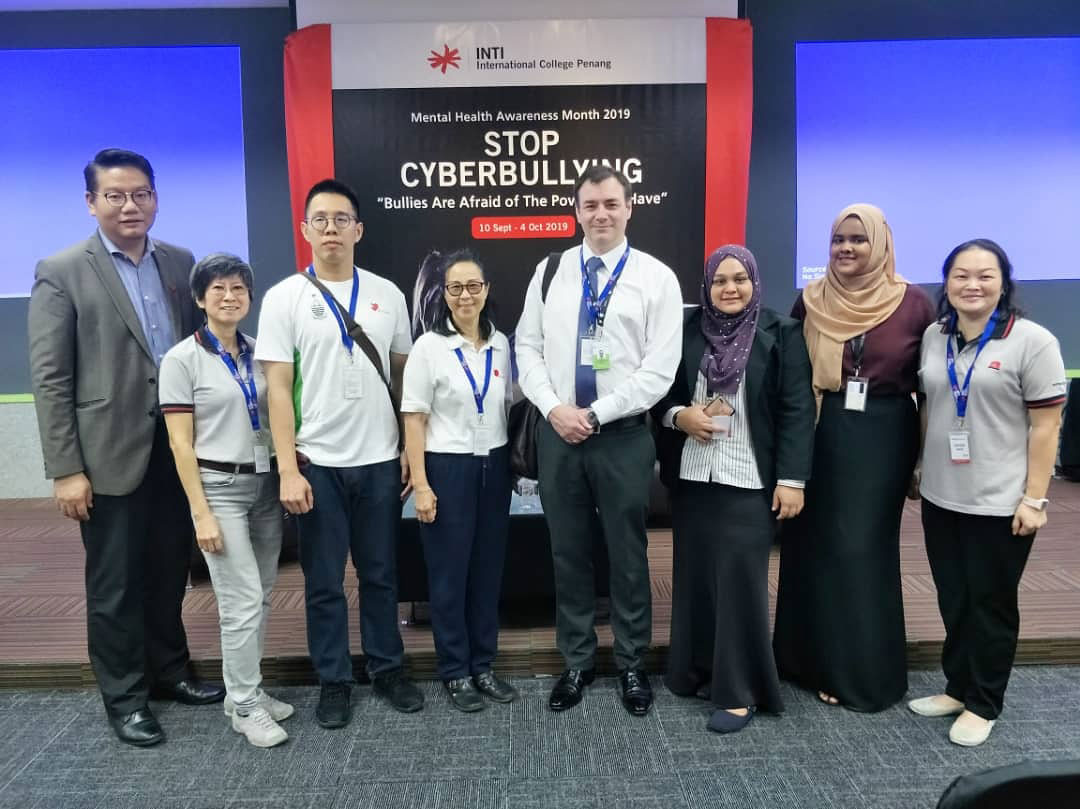According to the World Health Organisation, one in four of us will experience mental health problems at some point in our lives1. Having said that, there has been a significant spike in treating individuals with mental health concerns and more efforts are being taken in various communities. But, with the stresses and uncertainty of the COVID-19 pandemic, mental and emotional health concerns are on the rise.

Dhevaania Gendsen, a trained and certified student counsellor at INTI International College Subang (INTI) for the last two years.
In Malaysia, the Movement Control Order and subsequent directives that require people to stay at home and minimise social activities has had many individuals including students grieving over financial constraints, movement restrictions and separation from their loved ones or friends. For those with poor internet connections, the isolation may be felt all the more.
“Most students that approach me vented about living alone without having anyone to lean on and being separated from their parents, siblings, friends and partners. Some of them are currently facing financial difficulties because their parents are facing a downturn in their incomes, especially those who own businesses,” explained Dhevaania Gendsen, a trained and certified student counsellor serving at INTI International College Subang (INTI Subang) over the last two years.
Even now, while Malaysians resume their daily routines, INTI’s student counsellors are continuing to offer their services to the students via digital platforms. Students are able to converse with these counsellors via Whatsapp, Microsoft Teams and emails on an appointment basis.
Dhevaania shared that another common worry amongst students is seeing the updates about COVID-19, monitoring the daily number of cases recorded and wondering about its impact on them and their loved ones personally. The sheer pressure and volume of information has been the cause of anxiety and feeling overwhelmed among many students.
Teow Ker Shin, a student counsellor with 13 years of experience from INTI Subang added, “Students have expressed their concerns of needing to stay indoors and being unable to move around beyond their living spaces. Some of them even confessed to having relationship problems with their families and partners due to space constraints as they only see the same faces day in and day out. Their lack of social interaction with their friends and peers, as well as the routine of day to day life has caused them to feel lonely, affecting their mental health.”

Student representatives from INTI Penang with guests from D’Home Mental Health Association and Befrienders Penang at the launch event of the Mental Health Month 2019 and ‘Cyber-Bullying Awareness among College Students’ seminar.
“To continue supporting our students even though we are unable to meet them face-to-face, we have set up a website to encourage students to use the e-counselling services offered by the college. Students can set up appointments – similar to how they would when on campus – to talk to the counsellors about their concerns and problems. The website has made it easier for students to access our services and the number of appointments we’ve engaged in during the MCO period has increased by 66%,” said Ker Shin about the website she designed to help students cope with their inner battles.
Besides addressing similar challenges faced by students residing in Penang, Siti Nazwa, an experienced student counsellor of six years, who has been providing her counselling services to students at INTI Penang since January 2019, also conveyed tips to help students and individuals overcome these trying times.
“Self-care at this juncture is vital. Take care of your body; eat healthy, well-balanced meals and exercise regularly – these daily practices will help your body and mind tremendously and are within our own control. One should always remember to breathe deeply, take breaks in between classes, assignments or work, and make time to unwind. Make it a point to actively remind your inner self that this too shall pass. Taking in deep breaths will also help you to calm your mind besides doing activities you usually enjoy.”
Dhevaania and Ker Shin also advocated that staying connected virtually could help students, especially those living away from home, to adjust to the new norm. Students are advised to regularly connect with others to share their concerns and how they are feeling. They should remember to always maintain healthy relationships and build a support system although there are limited opportunities for face-to-face interactions. There are various alternatives that students can choose from, like video calling their loved ones who are living in other parts of the country or world.
INTI’s counsellors also emphasised that there could be a sense of comfort in having and sticking to a schedule. These they believed would help the students to overcome their anxiety. With discipline, students become vigilant about creating and maintaining routines, which provides a sense of regularity and a structure to follow. This could include daily habits, obligations such as study, attending classes online, exercise and preparing meals, as well as other basic activities that are mapped out throughout the day.
Ker Shin concludes, “This pandemic has raised many concerns around the economy and our way of life. As we start to recover from the last three months, let’s take this opportunity to be there for one another to overcome the challenges we face and work towards a better future. As part of the recovery process, being aware and taking care of one’s mental health will help us bounce back and become even stronger.”